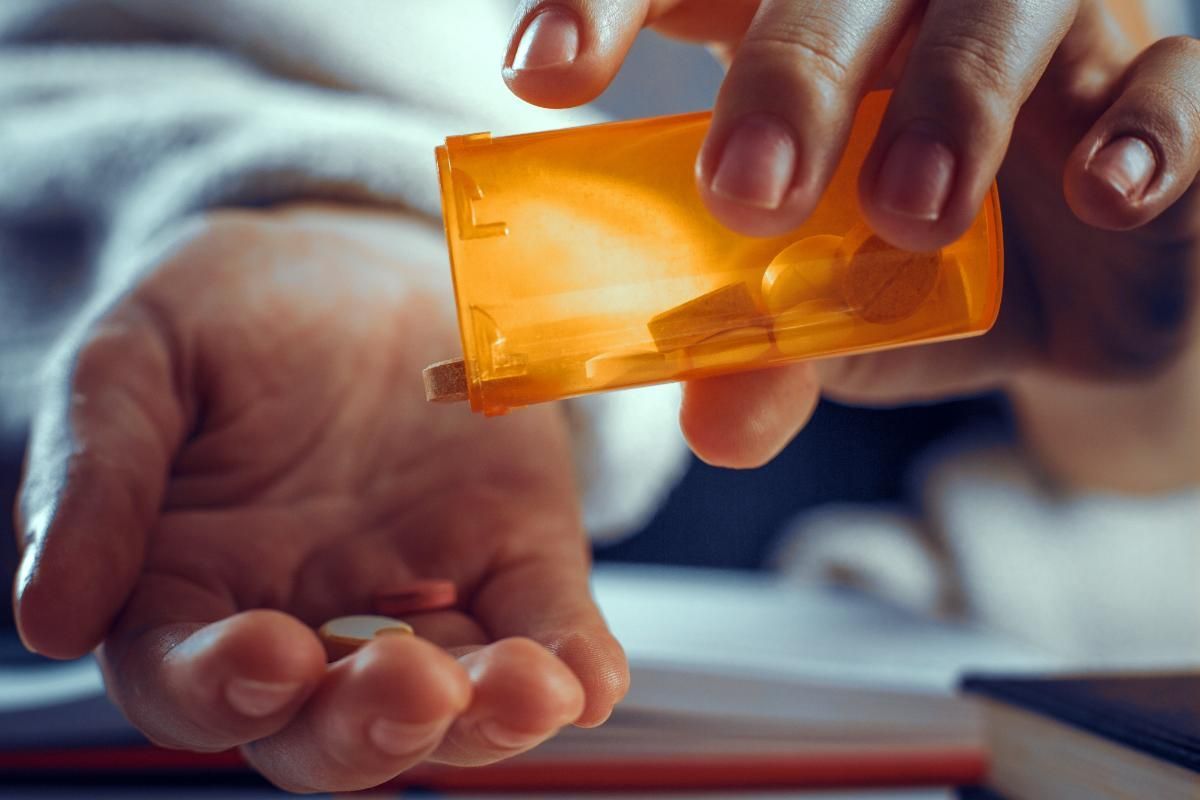Explore Our Blog
How long do withdrawals last?
Advance Minds Blog
A safe space to explore subjects within the community such as mental health, substance abuse and personal identity.
Our safe space also provides the opportunity for real individuals to express their hardships and success through writing.
How long do withdrawals last? Facts vs fiction: misconceptions about addiction exposed

Withdrawal is one of the most challenging aspects of overcoming addiction, and how long it lasts can vary greatly depending on several factors.
Understanding the truth about withdrawal and dispelling common misconceptions is key to helping individuals better prepare for and navigate recovery. Let's break down the facts vs. fiction about withdrawal symptoms and how long they last.
1. The Timeline of Withdrawal Symptoms 🕓
Fact: Withdrawal symptoms can last anywhere from a few days to several weeks, depending on the substance, the severity of the addiction, and the individual’s physical and mental health.
- Short-term withdrawals: Some substances, like alcohol and heroin, can cause intense withdrawal symptoms that peak within the first 24-72 hours and start to subside after a few days.
- Longer withdrawal periods: Drugs like benzodiazepines, opioids, and alcohol can cause prolonged withdrawal symptoms, sometimes lasting weeks or even months (especially if there is post-acute withdrawal syndrome or PAWS).
Fiction: Withdrawal symptoms last only a few hours or a couple of days, and then everything returns to normal.
- Reality: While some initial symptoms may subside after a few days, withdrawal can include long-lasting effects such as depression, anxiety, and cravings, which can last much longer than many people expect.
2. The Intensity of Symptoms 🏥
Fact: The intensity of withdrawal symptoms can vary depending on the substance and how long someone has been using it. Opioids, alcohol, and benzodiazepines, for example, have known severe withdrawal symptoms, while some other substances might cause milder symptoms.
- Opioids: Symptoms include muscle pain, insomnia, nausea, vomiting, diarrhea, and severe cravings.
- Alcohol: Symptoms may include shaking, sweating, confusion, hallucinations, and seizures, particularly in those with a long history of heavy drinking.
- Benzodiazepines: Withdrawal can cause severe anxiety, seizures, and cognitive impairment.
Fiction: Withdrawal is always the same for every substance and person.
- Reality: Withdrawal symptoms are specific to the drug, the person's body, and how long they’ve been using it. For instance, marijuana withdrawal symptoms tend to be milder, such as irritability and lack of appetite, compared to the intense symptoms of alcohol withdrawal.
3. Can Withdrawal Be Fatal? ⚠️
Fact: Some forms of withdrawal can be dangerous, and in extreme cases, they can be fatal. Alcohol and benzodiazepine withdrawal are the most dangerous.
- Alcohol withdrawal: Severe alcohol withdrawal can lead to delirium tremens (DTs), seizures, and even death if left untreated.
- Benzodiazepine withdrawal: Abrupt cessation of benzodiazepines can cause seizures, extreme anxiety, and life-threatening conditions.
Fiction: Withdrawal is not dangerous and can be managed without professional help.
- Reality: While many withdrawal symptoms are uncomfortable and challenging, professional medical supervision is often necessary to ensure safety, especially for substances like alcohol or benzodiazepines.
4. Medical Detox Is Always Required 🏥
Fact: While many people can safely detox at home under the right circumstances, medical detox is often necessary for individuals with long-term or severe addiction, especially with alcohol, opioids, or benzodiazepines. Medical supervision ensures safety and alleviates some of the discomfort caused by withdrawal symptoms.
Fiction: Detox is only needed in the case of a life-threatening addiction, and everyone can detox at home safely.
- Reality: For individuals who are addicted to certain substances, such as alcohol or opioids, medical detox can significantly reduce the risk of complications. It provides professional monitoring and access to medications that can help manage withdrawal symptoms.
5. Psychological Symptoms Are Just as Important 🧠
Fact: Withdrawal is not only physical—psychological symptoms like anxiety, depression, and cravings can be just as intense and last longer than physical symptoms. Post-acute withdrawal syndrome (PAWS) is a common occurrence after detox, where symptoms like mood swings, fatigue, and depression persist for months.
Fiction: Only physical symptoms of withdrawal matter.
- Reality: Psychological symptoms play a huge role in recovery. Treating these emotional and mental challenges through therapy, support groups, and medications is just as important as managing the physical symptoms of withdrawal.
6. The Impact of Support and Aftercare 👫
Fact: Support systems and aftercare programs are critical in helping individuals navigate withdrawal and stay sober. Therapy, 12-step programs, and ongoing medical treatment can help manage withdrawal symptoms and reduce the risk of relapse.
Fiction: Once the withdrawal symptoms subside, the individual is "cured" and doesn't need further support.
- Reality: Recovery is a long-term process. After withdrawal symptoms ease, the journey to recovery continues with therapy, support groups, and lifestyle changes. The risk of relapse is still present and ongoing care is essential.
7. Natural Detox Methods 🚶♂️
Fact: Some individuals may try natural detox methods like exercise, hydration, and healthy eating to ease withdrawal symptoms. While these methods can support overall health, they should not replace medical supervision or professional treatment, especially for substances like alcohol or opioids.
Fiction: Natural detox methods are enough to safely withdraw from drugs.
- Reality: While natural detox can complement a recovery plan, some withdrawal symptoms—such as severe cravings or physical discomfort—require medical intervention. Always consult with a healthcare provider before attempting any form of detox.
Final Thoughts
Understanding the facts about withdrawal and addiction is crucial in preparing for a successful recovery.
Withdrawal symptoms vary in duration, severity, and complexity, depending on the individual and the substance.
While detox can be challenging, it’s important to remember that the process can be safely managed with proper support, medical intervention, and professional care.
Relapse is common, and understanding the withdrawal process can help individuals better cope with the challenges ahead.
By knowing what to expect and seeking the right treatment, a successful recovery journey is possible! 🌱💙

















